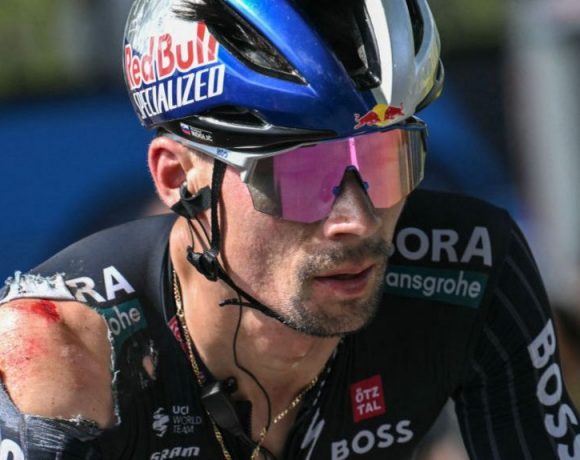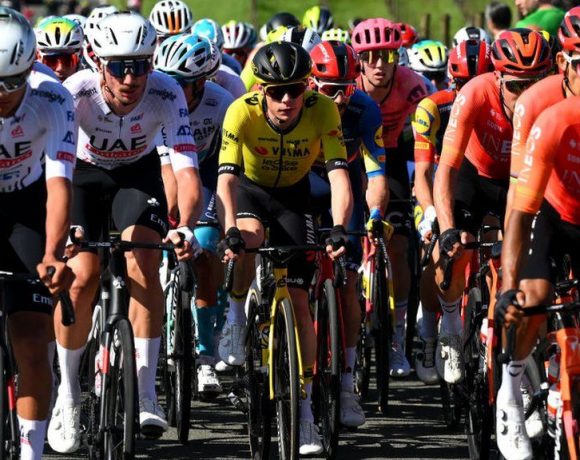
Tadej Pogačar’s performance at this year’s Tour de France has been marked by a striking nonchalance, showcasing an overwhelming dominance throughout the race that hasn’t been seen in over 25 years.
At just 26 years old, Pogačar achieved a remarkable “double,” becoming the first rider since Marco Pantani in 1998 to win both the Tour de France and the Giro d’Italia in the same year—a nearly unattainable feat in contemporary cycling. His apparent ease was evident as he took a bow after clinching his fourth stage win on Friday and maintained a light-hearted demeanor in post-race interviews.
Pogačar’s success continued with additional stage victories on Saturday and Sunday, totaling six stage wins for the race—the most by any rider since 2009 and an impressive feat for a general classification contender. Remarkably, he became the first rider since 1948 to win five mountain stages in a single Tour.
He finished with a commanding lead of six minutes and 17 seconds over his main rival, Jonas Vingegaard, who took second place. Pogačar extended his lead by winning the time trial in the final stage held in Nice on Sunday.
The rivalry between Pogačar and Vingegaard has defined the Tour de France since 2021, when Vingegaard first challenged Pogačar’s dominance. Pogačar won that year, but Vingegaard claimed the next two editions. This year, Pogačar reasserted himself as the preeminent rider, overpowering Vingegaard, who was still recovering from a severe crash three months prior that had left him with a broken collarbone, several ribs, and a collapsed lung.
Their rivalry contrasts two distinct personalities: the bold and aggressive Pogačar versus the more reserved and strategic Vingegaard. Remco Evenepoel, making his debut at the Tour, was the only rider able to keep pace with the duo, ultimately finishing third, 9:18 behind Pogačar.
On the podium, Pogačar wore the yellow jersey as the overall winner, with Evenepoel in white as the best young rider, Richard Carapaz in polka dots as the best climber, and Biniam Girmay making history as the first Black African rider to win the green jersey for the points classification.
Picture Courtesy: Google/images are subject to copyright


